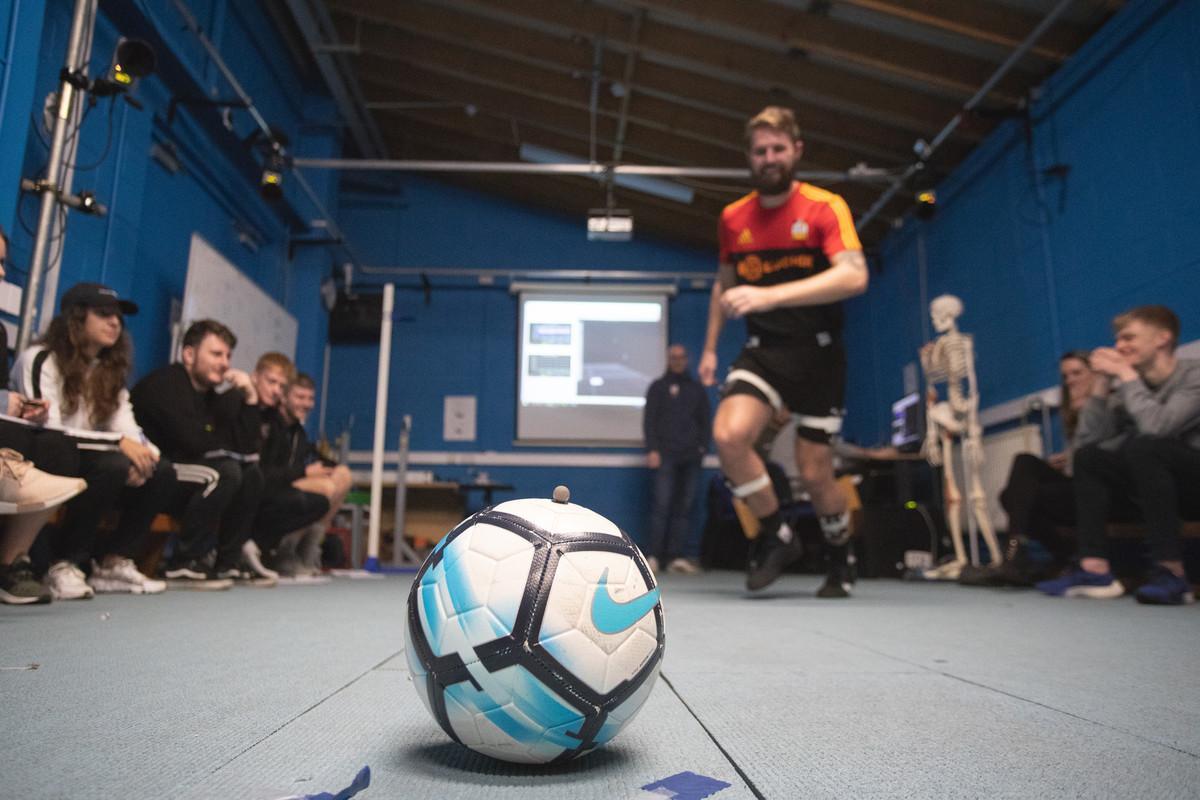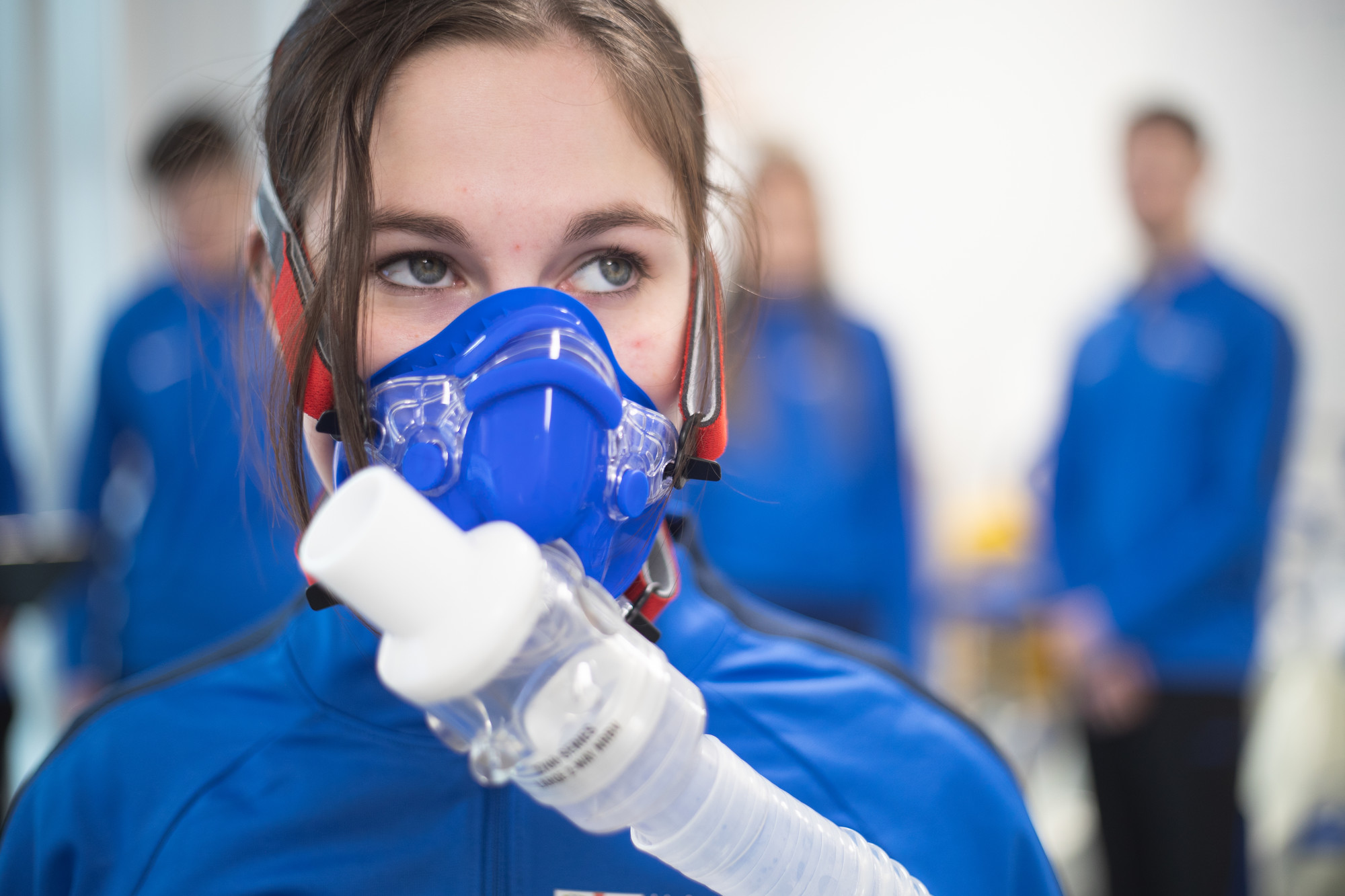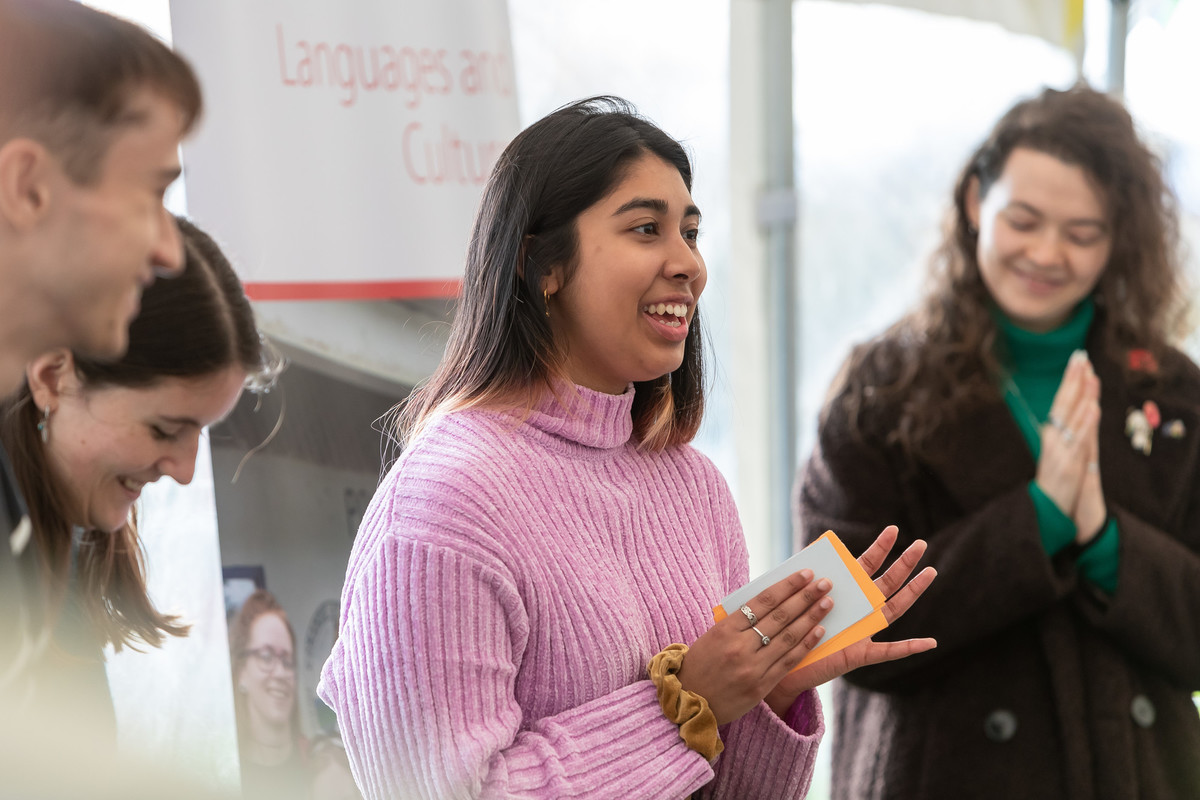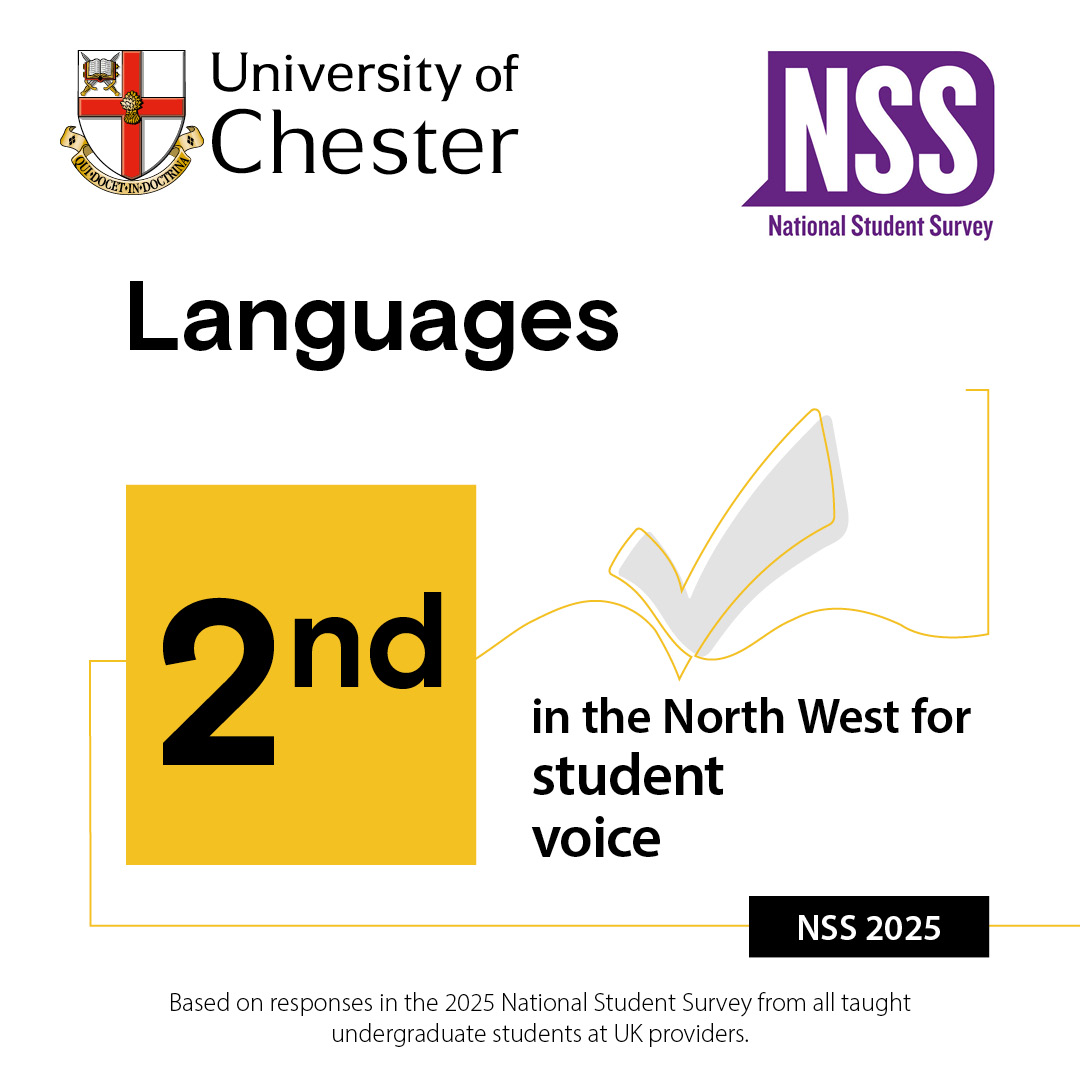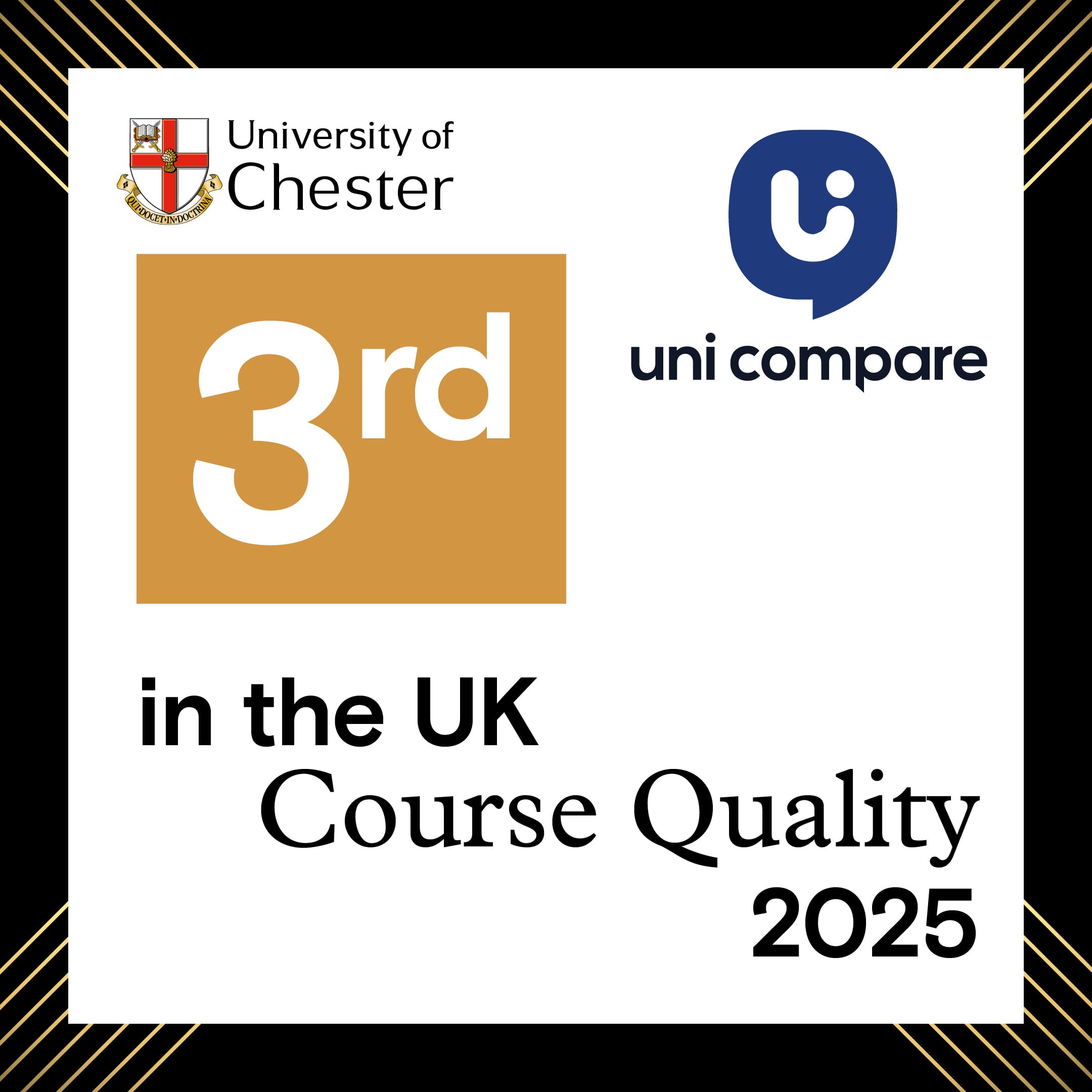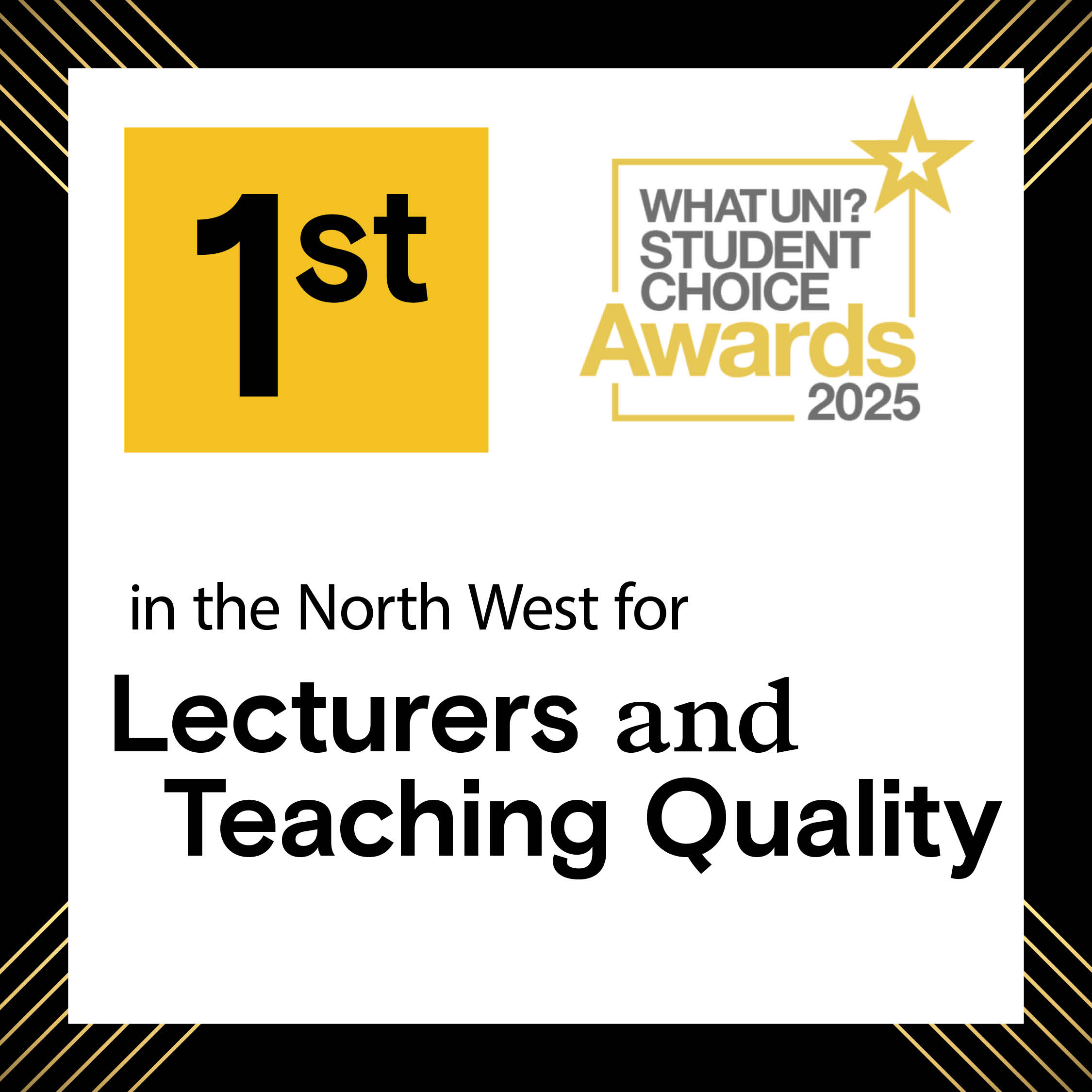112UCAS points
|
UCAS Tariff |
112 points |
|
GCE A Level |
Typical offer – BCC-BBC GCE A-level/AS-level Spanish for entry cohort 1 (post-A-level Spanish), or a GCSE in a Modern Foreign Language for entry cohort 2 (Beginners' route). |
|
BTEC |
BTEC Extended Diploma/Diploma (Sport and Exercise Sciences, Sport Development or Applied Science): Typical offer - DMM, Plus GCE A-level/AS-level Spanish or equivalent for entry cohort 1 (post-A-level Spanish), or a GCSE in a Modern Foreign Language for entry cohort 2 (Beginners' route). |
|
International Baccalaureate |
28 points, Plus GCE A-level/AS-level Spanish or equivalent for entry cohort 1 (post-A-level Spanish), or a GCSE in a Modern Foreign Language for entry cohort 2 (Beginners' route). |
|
Irish / Scottish Highers |
Irish Highers - H3 H3 H3 H3 H4, including Spanish for entry cohort 1 (post-A-level Spanish), or a GCSE equivalent in a Modern Foreign Language for entry cohort 2 (Beginners' route). Scottish Highers - BBBB, including Spanish or equivalent for entry cohort 1 (post-A-level Spanish), or a GCSE equivalent in a Modern Foreign Language for entry cohort 2 (Beginners' route). |
|
Access requirements |
Access to HE Diploma, to include 45 credits at level 3, of which 30 must be at Merit or above, Plus GCE A-level/AS-level Spanish or equivalent for entry cohort 1 (post-A-level Spanish), or a GCSE in a Modern Foreign Language for entry cohort 2 (Beginners' route). |
|
T Level |
Merit, Plus GCE A-level/AS-level Spanish or equivalent for entry cohort 1 (post-A-level Spanish), or a GCSE in a Modern Foreign Language for entry cohort 2 (Beginners' route). |
|
OCR Cambridge Technicals |
OCR Extended Diploma: DMM, Plus GCE A-level/AS-level Spanish or equivalent for entry cohort 1 (post-A-level Spanish), or a GCSE in a Modern Foreign Language for entry cohort 2 (Beginners' route). |
|
Extra Information |
Welsh Baccalaureate Advanced and A level General Studies will be recognised in our offer. We will also consider a combination of A Levels and BTECs/OCRs. |
Students from countries outside the UK are expected to have entry qualifications roughly equivalent to UK A Level for undergraduate study and British Bachelor's degree (or equivalent) for postgraduate study. To help you to interpret these equivalents, please click on your country of residence to see the corresponding entry qualifications, along with information about your local representatives, events, information and contacts.
We accept a wide range of qualifications and consider all applications individually on merit. We may also consider appropriate work experience.
English Language Requirements
- IELTS Academic: Undergraduate: 6.0 (minimum 5.5 in each band)
- Postgraduate: 6.5 (minimum 5.5 in each band)
For more information on our entry requirements, please visit International Entry Requirements.
